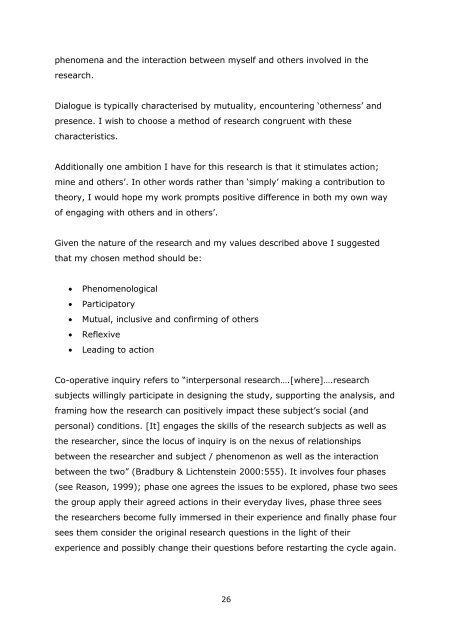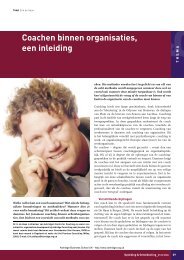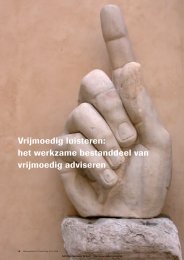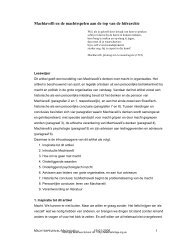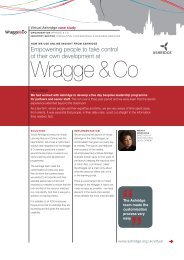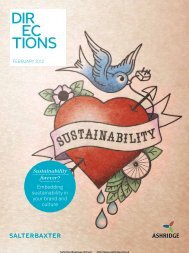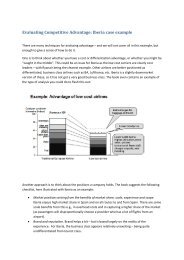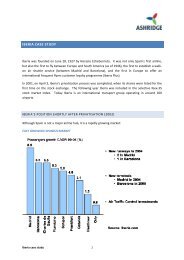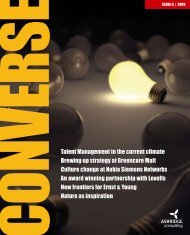“Dialogue – possible between leader and follower?” - Ashridge
“Dialogue – possible between leader and follower?” - Ashridge
“Dialogue – possible between leader and follower?” - Ashridge
Create successful ePaper yourself
Turn your PDF publications into a flip-book with our unique Google optimized e-Paper software.
phenomena <strong>and</strong> the interaction <strong>between</strong> myself <strong>and</strong> others involved in the<br />
research.<br />
Dialogue is typically characterised by mutuality, encountering ‘otherness’ <strong>and</strong><br />
presence. I wish to choose a method of research congruent with these<br />
characteristics.<br />
Additionally one ambition I have for this research is that it stimulates action;<br />
mine <strong>and</strong> others’. In other words rather than ‘simply’ making a contribution to<br />
theory, I would hope my work prompts positive difference in both my own way<br />
of engaging with others <strong>and</strong> in others’.<br />
Given the nature of the research <strong>and</strong> my values described above I suggested<br />
that my chosen method should be:<br />
• Phenomenological<br />
• Participatory<br />
• Mutual, inclusive <strong>and</strong> confirming of others<br />
• Reflexive<br />
• Leading to action<br />
Co-operative inquiry refers to “interpersonal research….[where]….research<br />
subjects willingly participate in designing the study, supporting the analysis, <strong>and</strong><br />
framing how the research can positively impact these subject’s social (<strong>and</strong><br />
personal) conditions. [It] engages the skills of the research subjects as well as<br />
the researcher, since the locus of inquiry is on the nexus of relationships<br />
<strong>between</strong> the researcher <strong>and</strong> subject / phenomenon as well as the interaction<br />
<strong>between</strong> the two<strong>”</strong> (Bradbury & Lichtenstein 2000:555). It involves four phases<br />
(see Reason, 1999); phase one agrees the issues to be explored, phase two sees<br />
the group apply their agreed actions in their everyday lives, phase three sees<br />
the researchers become fully immersed in their experience <strong>and</strong> finally phase four<br />
sees them consider the original research questions in the light of their<br />
experience <strong>and</strong> possibly change their questions before restarting the cycle again.<br />
26


